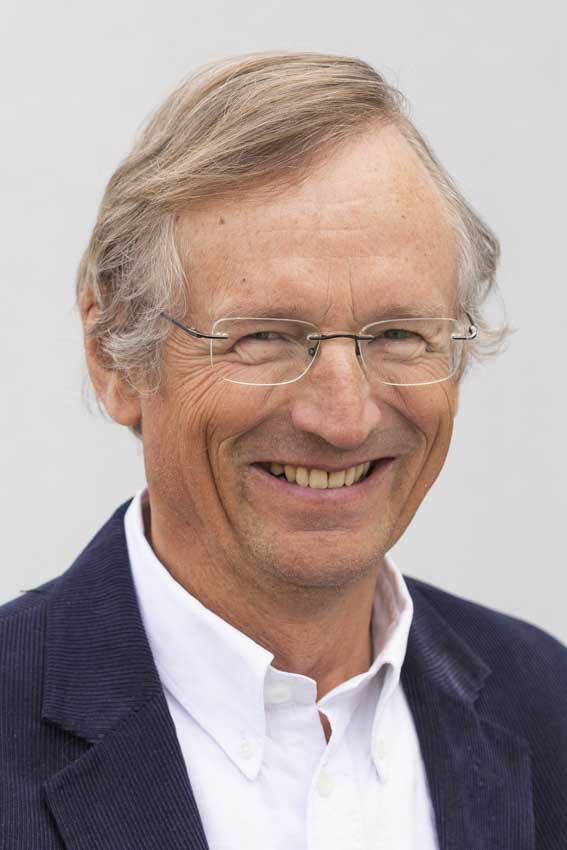CyLab Seminar: Jean-Pierre Hubaux
April 24, 2023
12:00 p.m. ET
Zoom and Panther Hollow (speaker will present remotely)
April 24, 2023
12:00 p.m. ET
Zoom and Panther Hollow (speaker will present remotely)

Please note this CyLab seminar is open only to Carnegie Mellon University faculty, students and staff.
Speaker: Jean-Pierre Hubaux
Professor, EPFL, Switzerland
Talk Title: Secure and Privacy-Preserving Decentralized ML
Abstract: To work properly, Machine Learning requires the access to large amounts of data. Yet, access to datasets can be difficult, because of regulations or because the controller considers its own data to be too sensitive or too precious. In this case, datasets remain in siloes, thus jeopardizing the ability to properly train ML models with enough data. In this talk, we will present several results that show how to solve this problem, leveraging notably on recent advances of cryptography.
We first address the challenge of privacy-preserving training and evaluation of neural networks in an N-party, federated learning setting. We propose a novel system, POSEIDON, the first of its kind in the regime of privacy-preserving neural network training. It employs multiparty lattice-based cryptography to preserve the confidentiality of the training data, the model, and the evaluation data, under a passive-adversary model and collusions between up to N−1 parties. To efficiently execute the secure backpropagation algorithm for training neural networks, we provide a generic packing approach that enables Single Instruction, Multiple Data (SIMD) operations on encrypted data. Our experimental results show that POSEIDON achieves accuracy similar to centralized or decentralized non-private approaches.
We then switch to principal component analysis (PCA), an essential algorithm for dimensionality reduction in many data science domains. We address the problem of performing a federated PCA on private data distributed among multiple data providers while ensuring data confidentiality. Our solution, SF-PCA, is an end-to-end secure system that preserves the confidentiality of both the original data and all intermediate results in a passive-adversary model with up to all-but-one colluding parties. SF-PCA jointly leverages multiparty homomorphic encryption, interactive protocols, and edge computing to efficiently interleave computations on local cleartext data with operations on collectively encrypted data. SF-PCA obtains results as accurate as non-secure centralized solutions, independently of the data distribution among the parties.
Next, we show how techniques of this kind can be used in medical research. Using real-world evidence in biomedical research, an indispensable complement to clinical trials, requires access to large quantities of patient data that are typically held separately by multiple healthcare institutions. We propose FAMHE, a novel federated analytics system that, based on multiparty homomorphic encryption (MHE), enables privacy-preserving analyses of distributed datasets by yielding highly accurate results without revealing any intermediate data. We demonstrate the applicability of FAMHE to essential biomedical analysis tasks, including Kaplan-Meier survival analysis in oncology and genome-wide association studies in medical genetics.
Finally, we briefly present Tune Insight SA, a start-up company that has industrialized the software implementing some of our results.
This work was carried out in collaboration with colleagues at EPFL, MIT, Broad Institute, Lausanne University Hospital and Tune Insight.
Bio: Professor Jean-Pierre Hubaux is the academic director of the EPFL Center for Digital Trust (C4DT). For its whole duration (April 2018 - December 2021), he led the national Data Protection in Personalized Health (DPPH) project. Until December 2021, he was a co-chair of the Data Security Work Stream of the Global Alliance for Genomics and Health (GA4GH). From 2008 to 2019 he was one of the seven commissioners of the Swiss FCC. He is a Fellow of both IEEE and ACM. Recent awards: three of his papers obtained distinctions at the IEEE Symposium on Security and Privacy, the flagship event on the topic (in 2015, 2018 and 2021). He is among the most cited researchers in privacy protection and in information security. He is a co-founder of Tune Insight SA.
July 28-29 2025
CyLab Security and Privacy Institute
Rangos Ballroom, Jared L. Cohon University Center
October 7-10 2025
CyLab Security and Privacy Institute
Rangos Ballroom, Jared L. Cohon University Center
October 28-29 2025
CyLab Security and Privacy Institute
IN PERSON AT CARNEGIE MELLON UNIVERSITY